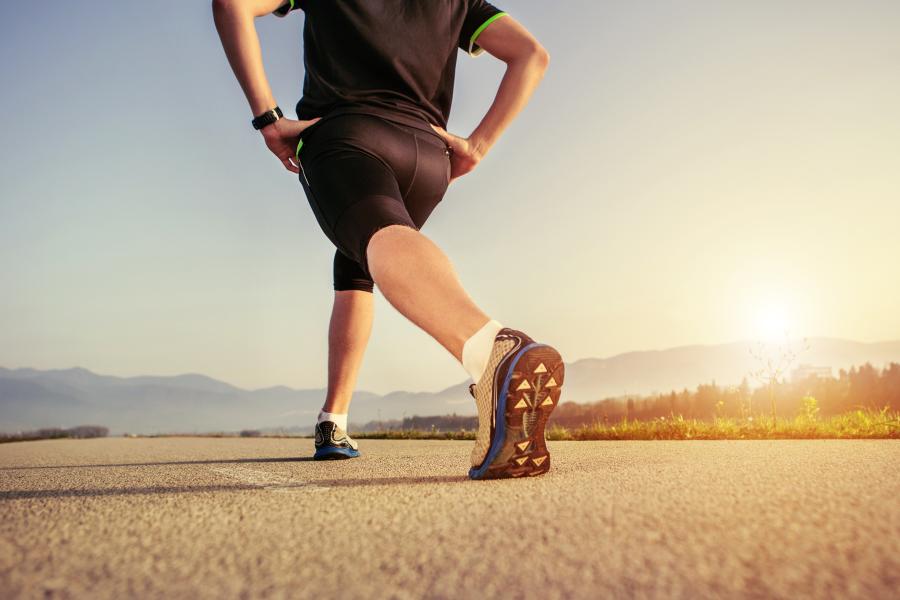About This Course
This programme has been designed to provide students with the opportunity to develop a critical understanding of the principles and application of research design and analytical methods relevant to the scientific study of sport and exercise sciences. This programme gives students the option to study elements of both physiology and psychology. The programme facilitates the integration of theory and professional practice, and throughout the programme the research process and emphasis on student autonomy of learning become increasingly important.
Professional accreditation
You may have the opportunity to prepare for the British Association of Sport and Exercise Sciences (BASES) supervisory experience training, which is normally a pre-requisite of the Association’s professional accreditation.
BASES also organises an annual student conference. Former MSc students have won prestigious awards for ‘Best Postgraduate Verbal Presentation’ and ‘Best Postgraduate Poster Presentation’ at the BASES Student Conferences. These awards are open to MSc, MRes and PhD students from all UK Universities.
Due to our reputation for research excellence we attract students from all over the world and have postgraduate course leaflets available in Arabic and Chinese.
Programme Length
MRes: 1 year full-time, 3 years part-time (as standard but students can request to study over two years); Certificate: 30 weeks full-time.
Qualification
MRes/Certificate: Students who complete 60 credits of taught modules gain a certificate award
Funding
The School offers some funding for students applying to study on any taught postgraduate programme. There is also a Bangor’s Sports Scholarship scheme for those who excel at sport.
For more information visit the School of Sport, Health and Exercise Sciences’ website.
Course Content
What will you study on this course?
The MRes programme provides a dedicated route for students who have a specific research aim in mind and are ready to carry out independent research, possibly leading to PhD-level study; or who are seeking a stand-alone research-based qualification suitable for a career in research. The MRes programme is designed to offer specialist research skills (in the taught element) and provide students with the opportunity to undertake a substantial piece of independent based research at the cutting edge of the specific research area (in the project element). It is the normal expectation that the independent research should be of an approximately publishable standard in a high-quality peer reviewed journal.
The MRes degree programme is a largely independent undertaking - in conjunction with the academic supervisor, but the taught component may also be delivered through traditional lectures, interactive seminars, one-to-one tutorials, computer sessions, and laboratory practical’s (depending on optional module choice(s)). Students will therefore gain substantial experience of working independently (research) while blending this with more traditional styles of learning (taught). Accordingly, the core and optional modules on this degree together utilise a variety of assessment methods that may include case-reports, practical skills (if specific optional modules are selected), the ability to communicate effectively, and the delivery of presentations (e.g., presentations).
Graduates of this degree programme will be able to demonstrate critical scientific knowledge and understanding of the principles and practices that are involved in research settings. This specifically includes the scientific principles and statistical procedures that underpin effective research design, data collection, and data interpretation in sport and exercise science. In conjunction with this, graduates will have developed a comprehensive written research project that is considered to be close to publishable standard.
Graduates of this degree programme will also possess other research focused skills such as the competency to conduct academic peer review and the ability to disseminate key statistical concepts to a target audience. Depending on their optional module choice(s), and the nature of their research project, graduates may also may acquire certain discipline-specific practical techniques that might be used when collecting data for research and/or applied purposes in laboratory and field settings. Furthermore, they will have developed contextual awareness of other important skills such as an awareness of health and safety and ethical considerations and will be able to apply problem solving abilities when considering how scientific principles might be applied to sport and exercise settings
Collectively, these approaches are designed to equip graduates with the ability to work independently and with skillsets (specific and transferrable) that foster effective communication, presentation, numeracy, and information technology awareness that will allow them to demonstrate professionalism as required in the workplace.
Modules for the current academic year
Module listings are for guide purposes only and are subject to change. Find out what our students are currently studying on the Sport and Exercise Sciences Modules page.
Course content is for guidance purposes only and may be subject to change.
Entry Requirements
At least a 2.2 honours degree (or equivalent) in a relevant subject.
Students with a degree from a different academic area may also be considered. Working professionals with non-graduate qualifications will be assessed on an individual basis. Please contact us.
EU and Overseas students, whose first language is not English, are required to take the standardised English Language test (IELTS) at their British Council before the June of their admission to the course.
Students who achieve a score of 6.5 or above (no individual score below 6.0) are eligible for direct entry to the course.
Careers
Examples of possible future careers:
- Study for a PhD (at Bangor University or elsewhere)
- Lecturer in Further or Higher Education
- Teacher
- Physiotherapy
- Research Assistant (universities and NHS)
- Laboratory Specialised Technician (e.g. sports clubs, hospitals)
- Police and Armed Services
- Social Care work
- Consultant
Application
Applicants who are interested in undertaking an MRes programme should first identify a potential supervisor from the staff list available on the School website.
They should follow the online application process for PhD/MPhil students which can be found here.
In addition, students should prepare a brief outline of their proposed area of research to accompany their application form


